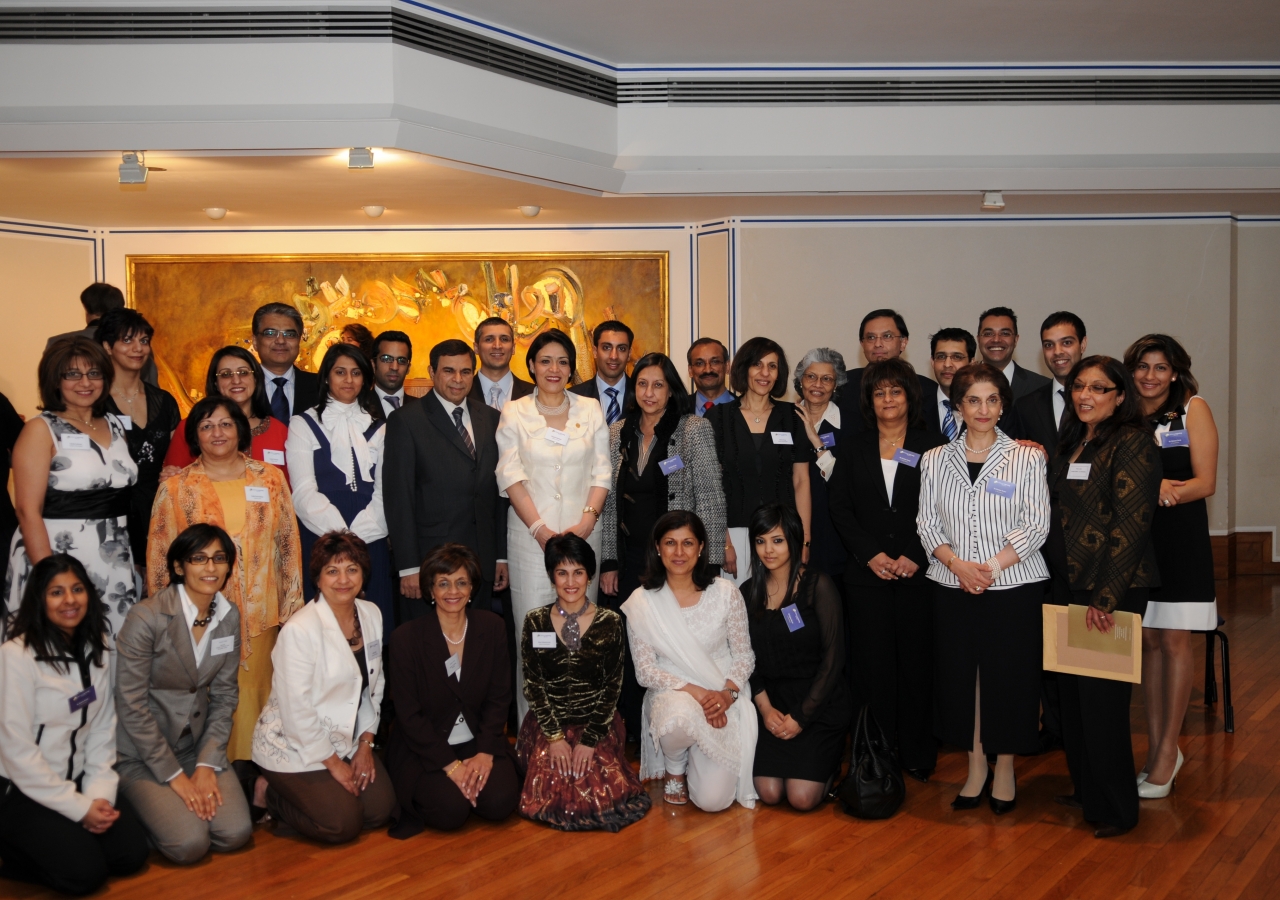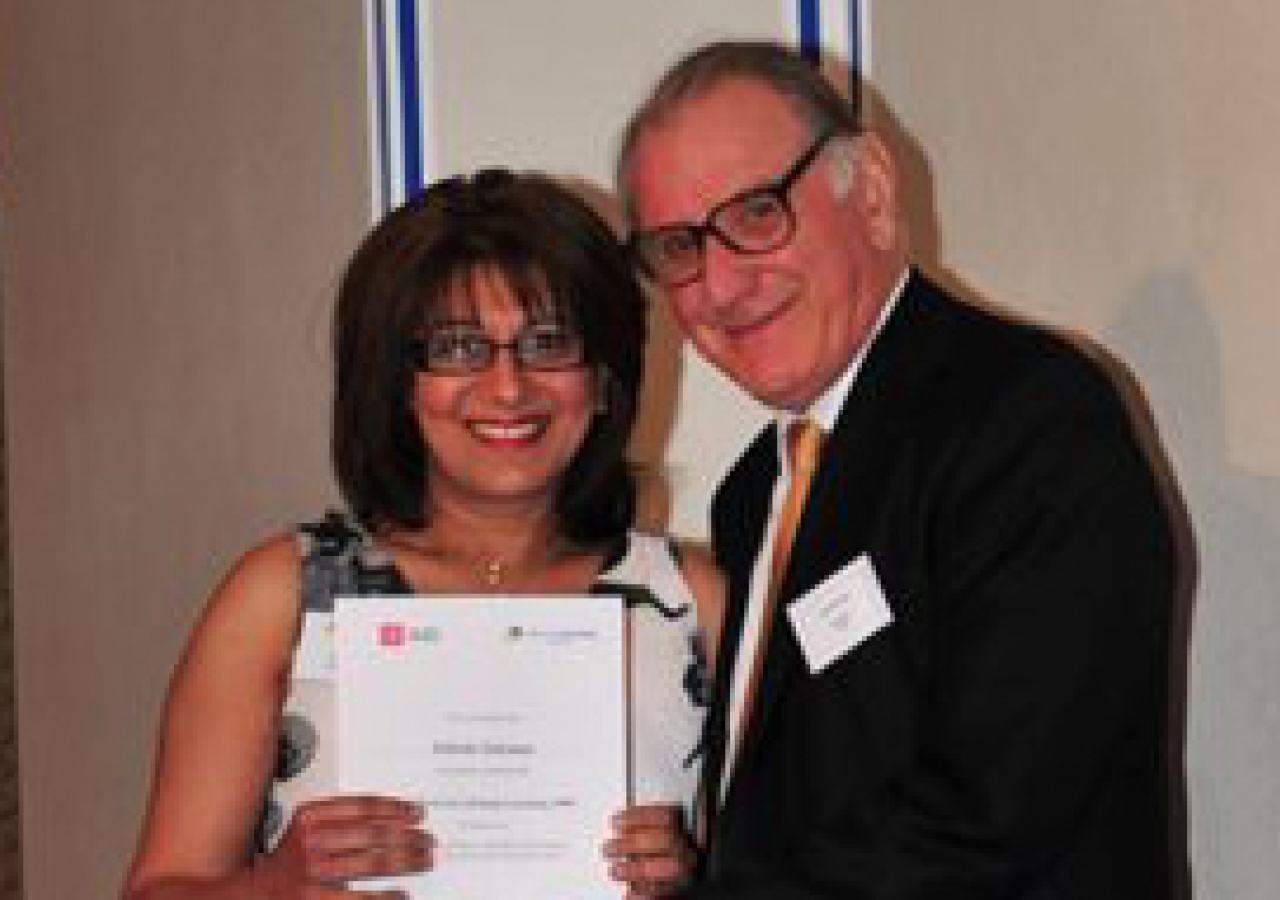In April 2009, a formal ceremony at the Ismaili Centre in London saw the graduation of 74 learners from the Lifelong Learning Programme. The Certificate in Lifelong Learning that they earned – awarded jointly by the London School of Economics and the Ismaili Council for the European Union (ICEU) – represents a changing mindset that favours continuous and shared learning, while facilitating personal and professional development.
The idea that learning extends from the cradle to the grave underpins the philosophy of the Lifelong Learning Programme. Five-hundred-twenty learners from various countries across Europe, representing a spectrum of ages, educational levels, and professions, have participated in the workshop that acts as the springboard to the programme. Those who embark on the journey to make learning a way of life often experience feelings of trepidation and anxiety mixed with excitement and hope.
In addition to a full time director of learning, the programme is supported by numerous volunteers, including a dedicated team of learning partners and lead peer supports. Its impact on the lives of participants has been as broad as the range of subjects that they have pursued. It has facilitated the exploration of skills, topics and subjects ranging from computer literacy to languages.
In this time of mass information, hyper-communication and accelerating change, adapting to the new demands of the world becomes all the more important. Through courses in different aspects of finance, enhanced participation in meetings, and learning Portuguese and Spanish, Zahid Tharani's experience enabled him to adapt his skills to address the changing economic environment. He has since taken on a new role in his work place, with greater responsibilities. His specialist knowledge means that he is now an integral part of his company's European operation. Tharani is currently supporting the Lifelong Learning Programme and, as a result of his desire to help others fulfil their personal and professional learning goals, he is developing skills towards becoming a professional life coach.
Zubeda Suleman used her experience of the programme to develop her entrepreneurial skills and turn a dream of running her own beauty therapy salon into a reality. Suleman negotiated a part-time position as a personal assitant and office manager, and invested her spare time in furthering her skills as a beauty and complementary therapist, personal trainer and life coach. She also took on a course in Practical Philosophy, which helped her to better understand herself.
Rebuilding self-confidence and developing greater capacity to contribute to society was also important to Daulat Karsan and Laila Imambaksh. A full time homemaker, Karsan saw the programme as a springboard towards increased confidence. She pursued courses that developed her computer competencies, learnt Hindi and improved her cookery skills.
Imambaksh took courses in Accounting and Computer Software, and an English language course. She grew both personally and professionally, and improved her confidence and sense of fulfilment at the same time. She is now committed to sitting the Professional Baccalaureate exam this year.
Making up for lost time and rekindling educational aspirations is a goal shared by many participants. Graduates like Zeitun Kassamali have used their experience to take their first steps in higher education, completing courses in English and IT, and she now plans to attend university to take a degree.
The graduates' stories speak to the empowering impact of the lifelong learning programme. Each has been remarkable in its own way, and each learner now looks forward to planning new learning journeys with a sense of self confidence, empowerment and a new found belief in themselves.










